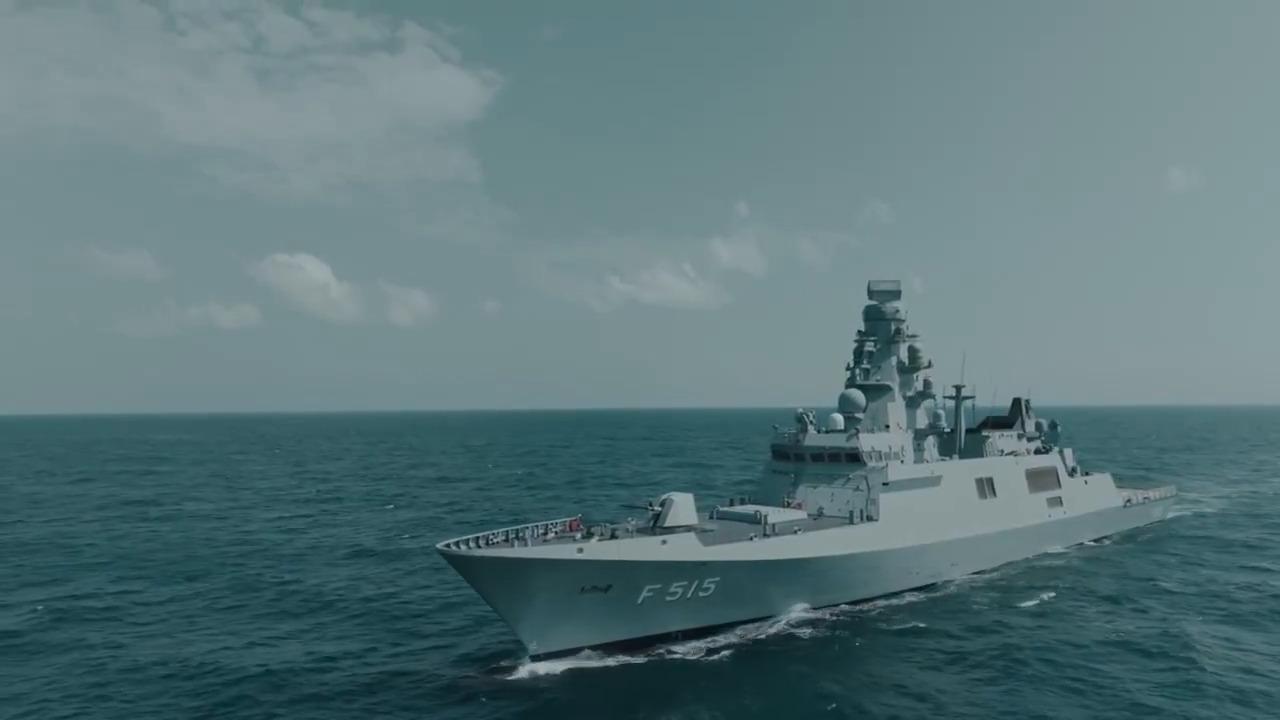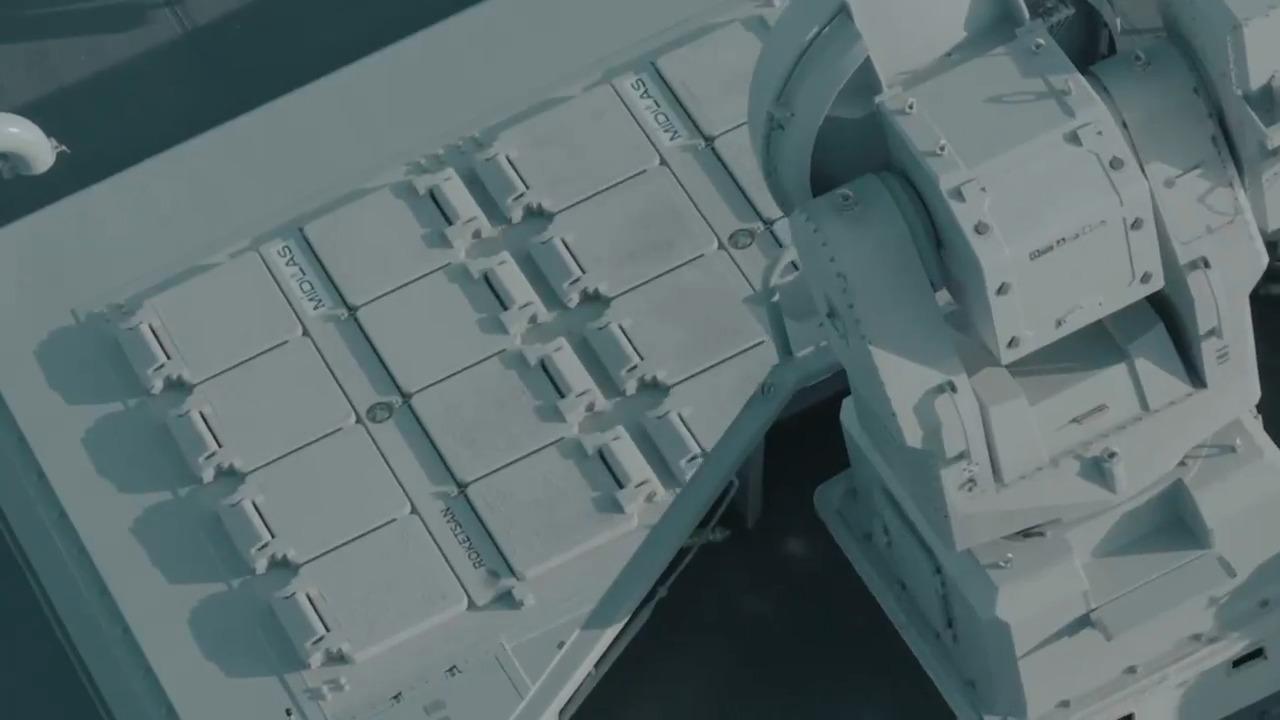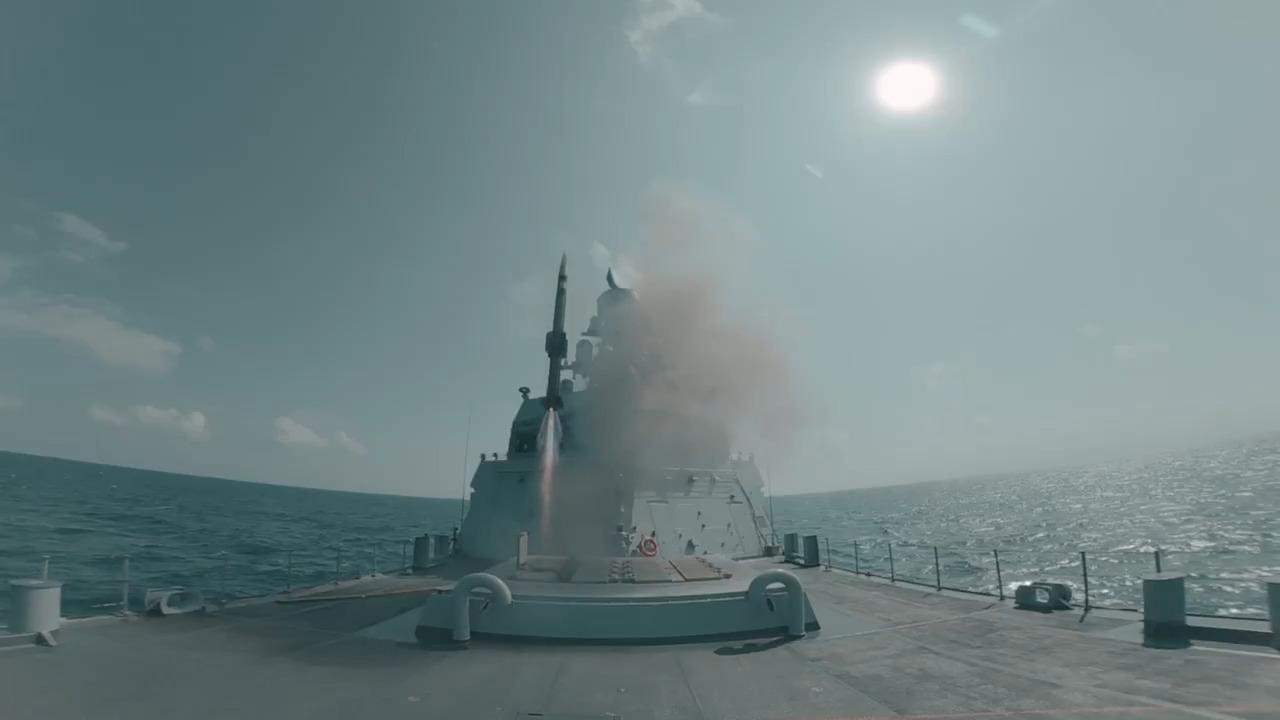The Turkish navy successfully conducted a live-fire test of the indigenously developed HISAR-D RF air defense missile from the TCG Istanbul frigate using the homegrown vertical launch system (VLS) MIDLAS, striking an unmanned aerial target with precision, defense officials announced.
The test, conducted off the coast of Sinop in the Black Sea, marks the second HISAR-D RF missile launch from TCG Istanbul (F-515), Türkiye's first domestically produced MILGEM-5 class frigate. Unlike the initial test, this firing engaged and destroyed a live aerial target.

During the latest event, a target unmanned aircraft was engaged and destroyed.
The successful test demonstrated the coordination between multiple Turkish defense contractors and their systems working in unison: STM (platform prime for TCG Istanbul), Roketsan (Hisar-D RF and MIDLAS), Aselsan (CENK and AKREP radars, fire-control and missile subsystems), and Havelsan (ADVENT combat management system).
"The National Vertical Launch System MIDLAS, developed by Roketsan, successfully completed another firing test of the HISAR-D RF missile from TCG Istanbul," said Haluk Gorgun, head of Presidency of Defense Industries (SSB), in a statement on a social media platform.
"This outstanding success, which proved that integrated solutions—from radars and fire-control systems to seeker heads and data links developed by Aselsan for our warships—worked successfully, is auspicious for our country," Gorgun added.

The HISAR-D RF missile system features an active radar seeker head and is designed to protect naval vessels against various aerial threats, including fighter aircraft, helicopters, unmanned aerial vehicles, cruise missiles, and air-to-surface missiles.
The system provides 360-degree threat protection with a range exceeding 40 kilometers, based on land-based variant testing.
Key technical specifications include a dual-stage rocket motor for enhanced thrust and maneuverability, bidirectional data link for mid-course guidance, and "fire-and-forget" capability.
The MIDLAS launcher's quad-pack configuration allows four missiles per cell, significantly increasing naval defense capacity.

"This test proves the successful operation of integrated solutions for our warships, from radars developed by Aselsan to fire control systems, seeker heads, and data links," Gorgun stated.
"This superior achievement, which demonstrates the reliability of our systems and our determination to improve with each test, is beneficial for our country," he noted.
The firing sequence involved Aselsan's CENK 400-N 4D search radar detecting the target, followed by engagement initiation by the AKREP 300-N fire control radar.
The HISAR-D fire control system provided active protection solutions, while the GUDU 200-MG data link ground equipment and missile-mounted data link enabled two-way communication for mid-course guidance. Terminal phase guidance was achieved through the AGRAS RF seeker head.

Defense officials indicated that MIDLAS will not be limited to air defense and anti-ship missiles. Future integration plans include torpedo munitions, with ongoing work to incorporate the SIPER Block I long-range air defense system and Atmaca anti-ship missile into the platform.
"The synergy created by all our teams working shoulder to shoulder, from Aselsan to Havelsan, from STM to Roketsan, adds strength to our Naval Forces and provides strategic capabilities to our country," Gorgun added, thanking all companies, engineers, and Naval Forces Command personnel involved in the project.